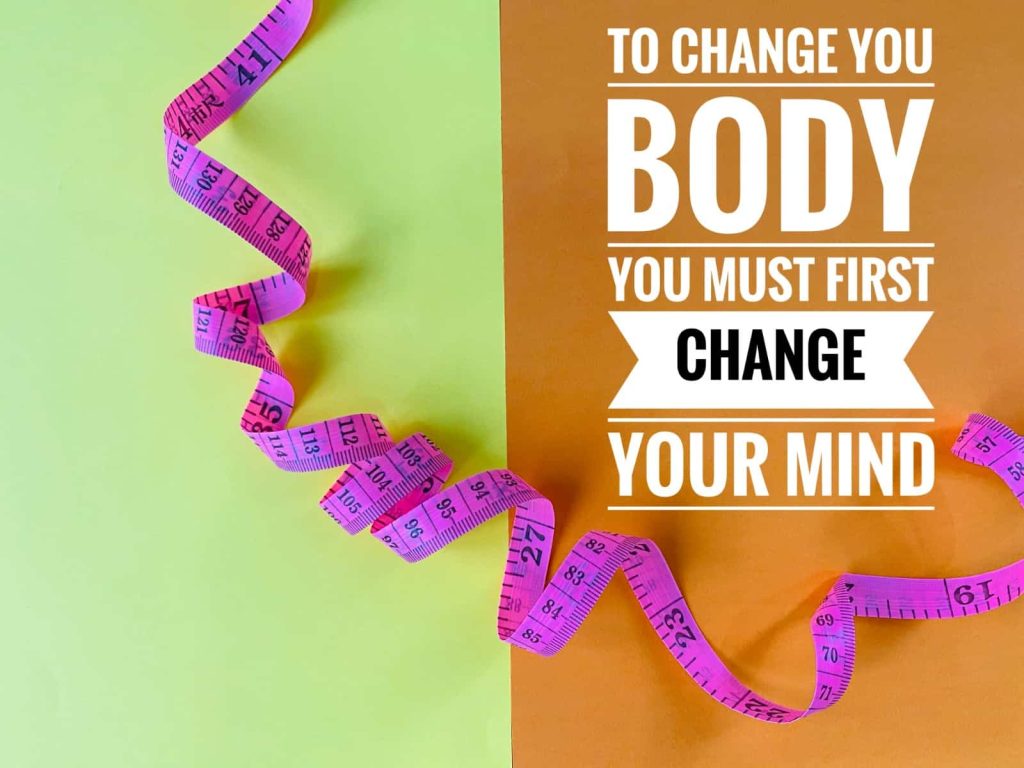
Weight loss can often feel like an overwhelming challenge, but it doesn’t have to be. By making small, sustainable changes to your lifestyle, you can achieve significant results without drastic measures. Instead of embarking on extreme diets or intense workout regimens, focusing on simple adjustments can lead to long-lasting weight loss and improved health.
1. Set Realistic Goals
Setting realistic goals is crucial for successful weight loss. Instead of aiming for drastic changes in a short period, set achievable targets that align with your lifestyle and capabilities. Start with small goals, such as losing a few pounds per month, and gradually increase them as you progress. This approach not only makes the journey more manageable but also increases your chances of maintaining your new weight in the long term. Setting attainable goals also prevents feelings of frustration and failure.
2. Prioritize Nutrition
Nutrition plays a fundamental role in weight loss. Focus on consuming a balanced diet rich in fruits, vegetables, lean proteins, and whole grains. Limit your intake of processed foods, sugary snacks, and high-calorie beverages. Be mindful of portion sizes and aim to eat smaller, more frequent meals throughout the day to keep your metabolism active. Prioritizing nutrition not only helps with weight loss but also improves overall health and well-being.
3. Practice Mindful Eating
Mindful eating involves paying full attention to the sensory experience of eating, including the taste, texture, and aroma of food. Avoid distractions such as watching TV or using your phone while eating, as these can lead to overeating. Chew your food slowly and savor each bite, allowing your body to register when it’s full. By practicing mindful eating, you can develop a healthier relationship with food and prevent mindless snacking. Mindful eating also enhances the enjoyment of food and promotes gratitude for nourishing your body.
4. Stay Hydrated
Drinking an adequate amount of water is essential for weight loss. Water helps flush out toxins, aids digestion, and promotes satiety, reducing the likelihood of overeating. Aim to drink at least 8-10 glasses of water per day, and increase your intake if you’re physically active or live in a hot climate. You can also incorporate hydrating foods such as fruits and vegetables into your diet to boost your water intake. Proper hydration supports overall health and can improve skin quality and energy levels.
5. Get Quality Sleep
Quality sleep is often overlooked but plays a significant role in weight management. Lack of sleep can disrupt hormone levels, increasing hunger and cravings for unhealthy foods. Aim for 7-9 hours of quality sleep each night to support your weight loss efforts. Establish a regular sleep schedule, create a relaxing bedtime routine, and avoid caffeine and electronics before bed to improve sleep quality. Quality sleep not only aids weight loss but also enhances cognitive function and mood.
6. Move More Throughout the Day
Incorporating more physical activity into your daily routine can help you burn calories and accelerate weight loss. Find opportunities to move more throughout the day, such as taking the stairs instead of the elevator, walking or biking to work, or doing household chores. Aim for at least 30 minutes of moderate-intensity exercise most days of the week, such as brisk walking, cycling, or swimming, to reap the benefits of regular physical activity. Increasing daily movement not only burns calories but also boosts metabolism and improves cardiovascular health.
7. Find Activities You Enjoy
Exercise doesn’t have to be a chore; find activities you enjoy to make it more enjoyable and sustainable. Whether it’s dancing, hiking, yoga, or playing a sport, choose activities that you look forward to doing. Experiment with different forms of exercise until you find what works best for you, and don’t be afraid to mix it up to keep things interesting. Enjoying your workouts increases adherence and makes staying active a pleasurable part of your routine.
8. Build Muscle
Incorporating strength training into your exercise routine can help you build muscle and boost your metabolism. Muscle tissue burns more calories at rest than fat tissue, so increasing your muscle mass can help you burn more calories throughout the day. Incorporate exercises that target major muscle groups, such as squats, lunges, push-ups, and deadlifts, into your workouts. Start with light weights and gradually increase the resistance as you get stronger. Strength training not only aids weight loss but also improves bone density and functional strength.
9. Be Consistent
Consistency is key when it comes to weight loss. Make healthy eating and regular exercise a part of your daily routine, rather than something you do only occasionally. Stick to your plan even when you face challenges or setbacks, and avoid getting discouraged by slow progress. Remember that small, consistent changes over time lead to significant results. Consistency builds habits that eventually become second nature, making it easier to maintain your weight loss in the long run.
10. Track Your Progress
Tracking your progress can help you stay motivated and accountable on your weight loss journey. Keep a food diary to record what you eat and drink each day, as well as your exercise activities. Use a scale or measuring tape to track changes in your weight and body measurements over time. Celebrate your achievements, no matter how small, and adjust your plan as needed based on your progress. Regularly monitoring your progress provides valuable feedback and helps identify areas for improvement.
11. Be Patient
Weight loss takes time, so be patient with yourself and trust the process. Avoid expecting overnight results and understand that sustainable weight loss requires gradual changes. Focus on adopting healthy habits that you can maintain for life, rather than quick fixes or fad diets. Celebrate your progress along the way and stay committed to your goals. Remember that every step you take towards a healthier lifestyle is a step in the right direction, regardless of the pace.
12. Practice Self-Compassion
Be kind to yourself throughout your weight loss journey. Avoid self-criticism or negative self-talk and instead practice self-compassion. Treat yourself with the same kindness and understanding that you would offer to a friend facing similar challenges. Focus on your achievements and progress, and learn from any setbacks without dwelling on them. Recognize that setbacks are a natural part of the process and use them as opportunities for growth.
13. Seek Support
Seeking support from friends, family, or a support group can make a significant difference in your weight loss success. Share your goals with others and ask for their encouragement and assistance when needed. Surround yourself with people who uplift and motivate you to stay on track, and don’t hesitate to seek professional help if you’re struggling with your weight loss journey. Having a strong support system can provide accountability, encouragement, and valuable insights.
14. Manage Stress
Chronic stress can sabotage your weight loss efforts by triggering emotional eating and disrupting hormone levels. Find healthy ways to manage stress, such as practicing mindfulness meditation, deep breathing exercises, or engaging in relaxing activities like yoga or tai chi. Prioritize self-care and make time for activities that bring you joy and relaxation. By managing stress effectively, you can prevent it from derailing your weight loss progress and improve your overall well-being.
15. Plan Ahead
Planning ahead can help you make healthier choices and avoid impulsive eating. Take time to plan your meals and snacks for the week, and make a grocery list of nutritious foods. Prep ingredients in advance to streamline meal preparation, and pack healthy snacks to take with you when you’re on the go. Having healthy options readily available can prevent you from reaching for unhealthy choices when hunger strikes. Planning ahead also saves time and reduces the temptation to choose convenience foods.
16. Allow for Treats
Depriving yourself of your favorite foods can backfire and lead to binge eating. Instead of completely eliminating treats from your diet, allow yourself to indulge in moderation. Enjoy a small portion of your favorite dessert or snack occasionally, and savor every bite without guilt. Building flexibility into your eating plan can help you stick to it long term and prevent feelings of deprivation. Remember that balance is key, and occasional treats can be enjoyed as part of a healthy lifestyle.
17. Stay Positive
Maintaining a positive attitude can help you overcome challenges and stay motivated on your weight loss journey. Focus on the progress you’ve made and the positive changes you’ve implemented, rather than dwelling on setbacks or obstacles. Surround yourself with positivity by seeking out inspirational stories, quotes, or affirmations that resonate with you. Remember that a positive mindset is a powerful tool for achieving your goals. Positive thinking can increase resilience, boost motivation, and foster a sense of empowerment.
18. Celebrate Non-Scale Victories
While the number on the scale is one way to measure progress, there are many other victories to celebrate along the way. Pay attention to how your clothes fit, improvements in your energy levels, or changes in your overall health. Celebrate these non-scale victories as evidence of your hard work and commitment to a healthier lifestyle. Recognizing and celebrating non-scale victories reinforces positive behaviors and encourages continued progress.
19. Focus on Health, Not Just Weight
Shift your focus from just losing weight to improving your overall health and well-being. Embrace healthy habits that nourish your body and mind, regardless of their impact on the scale. Aim to increase your energy levels, reduce your risk of chronic diseases, and improve your quality of life through healthy eating and regular exercise. Remember that true success comes from feeling good inside and out. Prioritizing health over weight loss promotes a holistic approach to well-being.
20. Maintain Your Progress
Once you’ve achieved your weight loss goals, it’s essential to maintain your progress over the long term. Continue practicing the healthy habits you’ve adopted, such as eating a balanced diet, staying active, and managing stress. Regularly reassess your goals and make adjustments as needed to ensure you stay on track. By making weight loss a sustainable lifestyle change, you can enjoy the benefits of improved health and well-being for years to come. Maintenance is an ongoing process that requires diligence and commitment, but the rewards are well worth the effort.


